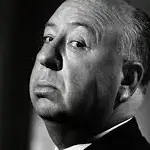
For me personally, what makes this year's Cannes Palme d'Or winner, "Anatomy of a Fall" brilliant is not the suspense surrounding whether the victim committed suicide or was murdered. Instead, it is the director's subtle insights into everyday life that truly captivates.
In this article, my aim is to analyze the hidden power struggle within the marriage of Sandra and Samuel, which I found to be the most prominent aspect while watching this movie. This might not have been the director's intention, but it highlights the director's captivating observation of life.
The Invisible Husband, the Public Wife
Let's begin with the husband, Samuel.

In the film, he is almost an invisible man. His first presence is felt during his wife Sandra's interview, where he expresses his discontent by playing loud music upstairs. The second time materialized when his body is discovered by their son Daniel. Later, a recorded argument between him and Sandra is played in court. By this point in the film, which is well over two-thirds of the runtime; discussions in the courtroom have up till then revolved around the cause of his death. However, before the recording was played, I had a very vague understanding of him. I was unaware that he was also a writer, just like his wife. I even mistakenly believed that his profession was somehow related to music. As for his relationships with family and friends, I had no further knowledge than the possible issues with his wife mentioned by the prosecutor. He primarily exists in the memories of others, open to interpretation of any kind.
Now, let's take a look at Sandra, the wife.

Her presence in the film is consistently straightforward and public. The film begins with an interview at home, portraying her as a respected writer. The admiration for Sandra is evident from the interviewer's expression. After her husband's fall off a building, the film includes several clips of television coverage, emphasizing that Sandra has become the focus of public attention, albeit for negative reasons. In court, she is given ample time to present her defense, unlike her husband, who is unable to speak and only exists in recorded files.
In the story, Sandra clearly has a much stronger claim than Samuel. The intense quarrel captured in the recordings accurately portrays the power struggle between the couple.
The Quarrel Between Sandra and Samuel
The intense quarrel takes place the day before Samuel's fall.
Initially, the quarrel centers around a struggle over time. Samuel portrays himself as the victim, accusing Sandra of devoting too little time to their son Daniel, which diminishes his own time. He states, "I want time to start writing same as you."
In response, Sandra attempts to defend herself, just like how she does in the courtroom. She finds Samuel's demands unreasonable, believing that time management is his own responsibility. She asserts, "Writers don't stop writing because they have a son and chores."
However, these explanations only intensify Samuel's anger, and Sandra becomes increasingly furious as well.
Gradually, they shift towards personal attacks. Samuel accuses Sandra of plagiarizing his work (actually Sandra had obtained his approval for creative inspiration; Samuel is exaggerating). Likewise, Sandra accuses Samuel of being an incapable writer, despite the fact that Samuel has published books and teaches writing in college. These mutual accusations escalate and lead to a terrifying act of violence.
Whether coincidental or intentional on the part of the director, there are similarities between this quarrel and the courtroom debate - both gradually deviate from their initial purpose. In the courtroom, the initial purpose is to analyze Samuel's cause of death, but it ultimately delves into the couple's conflicts. Similarly, in the quarrel, Samuel initially complains about not having enough time, but it eventually evolves into intense hatred between husband and wife.
In my opinion, time is not the primary issue. Behind Samuel's complaints lies his fear of losing power. He feels inadequate compared to his wife, whose career is thriving as she becomes a famous writer and even scoring various interviews. All of these diminishes his position within their marriage. While his complaints during their quarrel may seem to be about not having enough time to write, his wife plagiarizing his ideas, and her infidelity, deep down, what he truly fears is that his wife holds a higher status in their marriage. He feels oppressed by his loss of power and is too ashamed to express this openly.
Samuel's fear is deeply hidden, even from himself. It is reminiscent of the line from "Barbie," which states, "We’re doing it (patriarchy) well We just…hide it better now." In my previous article titled "Barbie: As a Man, I Applaud Barbie," I mentioned that Samuel is a male victim of the patriarchy. Despite loving his wife and son and dedicating himself wholeheartedly to his family, he struggles to adapt to a situation where the woman is stronger than the man within the marriage – something that is not allowed by patriarchal concepts he holds.
The Increasing Trend of Women Outrunning Man in Modern Marriage
In traditional marriages, husbands are responsible for earning money, while wives take care of household chores and children. This arrangement often resulted in men having a higher level of power within the household.
In recent years, the conflicts in many movies, including "Marriage Story" and "Fair Play," often arises from the theme of women outrunning men.
Let's start with "Marriage Story." When the couple just got married, the husband, Charlie, is a theater director, while the wife, Nicole, is an unknown actress. Charlie is more successful than Nicole in terms of artistic aesthetic and income. Nicole sacrifices her own choices for art and career, surrendering power to Charlie, who is seen as more artistic and avant-garde. However, the power dynamics shifts when Nicole breaks free from the constraints of her husband's artistic vision and starts gaining more fame.
The climax of "Marriage Story" is a heated quarrel, similar to "Anatomy of a Fall." During the quarrel, both the husband and wife narrate completely different versions of events. In Charlie's account, he becomes the means through which Nicole escapes Los Angeles and begins a new life. In Nicole's perspective, she is portrayed as Charlie's accessory, confined to a small Brooklyn apartment and denied the chance to express herself and pursue her own creativity.
This quarrel in fact reveals Charlie's disappointment at losing control in the marriage, and Nicole's determination to regain her own sense of self. Shortly after the argument, they proceed with a divorce.
In the movie "Fair Play," we witness the unease that arises when women attain positions of power. Emily and Luke are both lovers and colleagues. Initially, when Luke is expected to be promoted, Emily quietly supports him from the sidelines, as we would anticipate. However, when Emily discovers that the promotion is actually for herself, she becomes nervous and becomes withdrawn instead of feeling joyful. Eventually, prompted by Luke's persistent questioning, she reluctantly utters, "I'm sorry." But why should she apologize for aspiring to accomplish more?
Imagine if the roles were reversed in these movies, where the husband and wife switched positions. Things would be different, and the conflicts depicted in the movies might not even occur.
For example, in "Fair Play," if Luke had gotten the promotion instead of Emily, he wouldn't have to apologize to her. Similarly, in "Marriage Story," if Charlie were a more famous actor and Nicole was a director facing a career slump, the arguments portrayed in the movie might not have happened, and their marriage could have been more harmonious.
Likewise, in "Anatomy of a Fall," if Samuel had a successful career while Sandra struggled to find time for her own work due to household chores and children, their family would have been happier with no tragic consequences. Nobody would die.
In modern society, the nature of work has evolved from physically demanding labor to office-based cognitive work. While men may have certain inherent advantages in physical work, there is no discernible difference between men and women in cognitive work. As a result, as society progresses, it is almost inevitable for men's status to decline while women's status rises. This shift in power dynamics is currently taking place and will continue in the future. Many contemporary literary works reflect this change and highlight the current emphasis on this issue.
Follow me for more discussions and discoveries of great films!















































Share your thoughts!
Be the first to start the conversation.